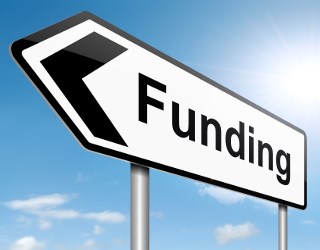
Consultant for ODS Verification and Fire-Fighting Data - Home-based
Consultant for ODS Verification and Fire-Fighting Data - Home-based has been closed on 25 Jun 2021. It no longer accepts any bids. For further information, you can contact the United Nations Development Programme
Bellow, you can find more information about this project:
Location: Thailand
General information
United Nations Development Programme
Finance & Insurance
Consulting
Closed
Timeline
18 Jun 2021
25 Jun 2021
Not available
Contacts
Description
| Consultant for ODS Verification and Fire-Fighting Data - Home-based | |||||||||||||||||||||||||||||||||||||||||||||||||||||||||||||||||||||||||||||
|---|---|---|---|---|---|---|---|---|---|---|---|---|---|---|---|---|---|---|---|---|---|---|---|---|---|---|---|---|---|---|---|---|---|---|---|---|---|---|---|---|---|---|---|---|---|---|---|---|---|---|---|---|---|---|---|---|---|---|---|---|---|---|---|---|---|---|---|---|---|---|---|---|---|---|---|---|---|
| Procurement Process : | IC - Individual contractor | ||||||||||||||||||||||||||||||||||||||||||||||||||||||||||||||||||||||||||||
| Office : | Bangkok Regional Hub - THAILAND | ||||||||||||||||||||||||||||||||||||||||||||||||||||||||||||||||||||||||||||
| Deadline : | 25-Jun-21 | ||||||||||||||||||||||||||||||||||||||||||||||||||||||||||||||||||||||||||||
| Posted on : | 18-Jun-21 | ||||||||||||||||||||||||||||||||||||||||||||||||||||||||||||||||||||||||||||
| Development Area : | CONSULTANTS | ||||||||||||||||||||||||||||||||||||||||||||||||||||||||||||||||||||||||||||
| Reference Number : | 79779 | ||||||||||||||||||||||||||||||||||||||||||||||||||||||||||||||||||||||||||||
|
Link to Atlas Project : 00037875 - MP Bilateral Funding Management Project | |||||||||||||||||||||||||||||||||||||||||||||||||||||||||||||||||||||||||||||
|
Documents :
TOR - ODS and FF data collection 2021 Confirmation of Interest and Submission of Financial Proposal P11 modified for SCs and ICs UNDP General Conditions for Individual Contracts | |||||||||||||||||||||||||||||||||||||||||||||||||||||||||||||||||||||||||||||
| Overview : PLEASE APPLY TO UNDP JOBS SITE Link: UNDP Jobs - 99872- Consultant for ODS Verification and Fire-Fighting
| |||||||||||||||||||||||||||||||||||||||||||||||||||||||||||||||||||||||||||||
Receive Daily Tenders and Grants notifications
Subscribe nowFeatured tenders
-
 Tender
18 Jun 2021
Thailand
Project and Knowledge Management Specialist
United Nations Development Programme
Tender
18 Jun 2021
Thailand
Project and Knowledge Management Specialist
United Nations Development Programme
-
 Tender
31 Aug 2021
Thailand
International Consultant for Assessing the Food Security and Nutrition Needs and Priorities of the PIDF Member States
United Nations Development Programme
Tender
31 Aug 2021
Thailand
International Consultant for Assessing the Food Security and Nutrition Needs and Priorities of the PIDF Member States
United Nations Development Programme
-
 Tender
09 Feb 2022
Thailand
National Specialist in Thailand for UNDP-GEF Project Development (National Deputy Team Coordinator)
United Nations Development Programme
Tender
09 Feb 2022
Thailand
National Specialist in Thailand for UNDP-GEF Project Development (National Deputy Team Coordinator)
United Nations Development Programme
-
 Tender
17 Jun 2021
Thailand
Climate Change Finance Consultant
United Nations Development Programme
Tender
17 Jun 2021
Thailand
Climate Change Finance Consultant
United Nations Development Programme
-
 Tender
08 Sep 2021
Thailand
National Consultant for the youth social innovation challenge on air pollution in Chiangrai province (Thai national only)
United Nations Development Programme
Tender
08 Sep 2021
Thailand
National Consultant for the youth social innovation challenge on air pollution in Chiangrai province (Thai national only)
United Nations Development Programme
Get free access to our Tenders & Grants Database
Our service is free of charge and will always be
Join NowDonors
-
 WEST AFRICAN DEVELOPMENT BANK
WEST AFRICAN DEVELOPMENT BANK
-
 COMMONWEALTH SECRETARIAT
COMMONWEALTH SECRETARIAT
-
 EUROPEAN AGENCY FOR THE MANAGEMENT OF OPERATIONAL COOPERATION AT THE EXTERNAL BORDERS OF THE MEMBER STATES OF THE EUROPEAN UNION
EUROPEAN AGENCY FOR THE MANAGEMENT OF OPERATIONAL COOPERATION AT THE EXTERNAL BORDERS OF THE MEMBER STATES OF THE EUROPEAN UNION
-
 GLOBAL AFFAIRS CANADA
GLOBAL AFFAIRS CANADA
-
 HORIZON 2020
HORIZON 2020
-
 INTERNATIONAL FUND FOR AGRICULTURAL DEVELOPMENT
INTERNATIONAL FUND FOR AGRICULTURAL DEVELOPMENT
-
 INTERNATIONAL TRADE CENTRE
INTERNATIONAL TRADE CENTRE
-
 KREDITANSTALT FUR WIEDERAUFBAU (RECONSTRUCTION CREDIT INSTITUTE)
KREDITANSTALT FUR WIEDERAUFBAU (RECONSTRUCTION CREDIT INSTITUTE)
-
 NETHERLANDS ORGANISATION FOR INTERNATIONAL COOPERATION IN HIGHER EDUCATION
NETHERLANDS ORGANISATION FOR INTERNATIONAL COOPERATION IN HIGHER EDUCATION
-
 UNITED STATES TRADE AND DEVELOPMENT AGENCY
UNITED STATES TRADE AND DEVELOPMENT AGENCY